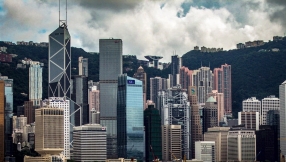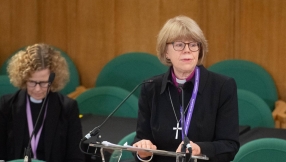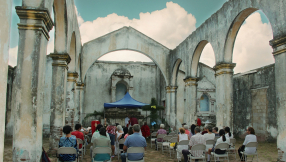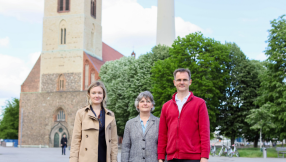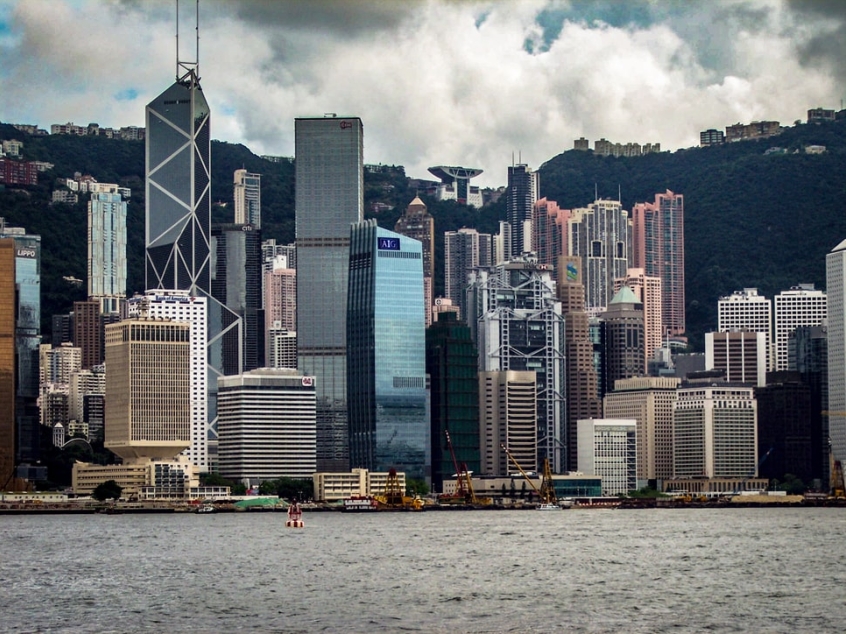
Seven Hong Kong Catholic churches, which were to hold mass to commemorate the 32nd anniversary of the Tiananmen Massacre of 1989 by the Chinese Communist Party, found threatening signs posted in front of their buildings, according to reports.
The posters that appeared on Thursday carried an image of Cardinal Joseph Zen, former bishop of Hong Kong who supported the democracy movement, and warned that public functions in remembrance of the Tiananmen Massacre violate the controversial national security law, which was passed last year, AsiaNews reported.
It's believed that a pro-CCP group was behind the threats.
The Justice and Peace Commission of the city diocese said the masses would go ahead as planned.
Hong Kong authorities had also banned an annual candlelight vigil Friday, which is held every year on June 4 to remember the sacrifice of thousands of Chinese citizens who were demanding freedom and democracy in 1989.
Despite the warnings, thousands of people in Hong Kong defied the ban and took part in the candlelight vigil, The Wall Street Journal reported, saying people started walking toward the city's Victoria Park, where it is held each year. Many people held their phones up with the flashlights shining at around 8 p.m. Friday.
Friday morning, police had arrested Chow Hang Tung, vice-chairwoman of the Hong Kong Alliance in Support of Patriotic Democratic Movements of China, which organizes the vigil, according to The Telegraph. Police also arrested a 20-year-old food delivery man for promoting an "unauthorized" assembly.
Last year, Hong Kong implemented the mainland China-imposed national security law after delaying legislative elections as pro-democracy candidates could have won due to anger among the city's people against that law.
The law, which went into effect without a review by Hong Kong Chief Executive Carrie Lam, has four categories of crimes: succession, subversion of state power, local terrorist activities and collaborating with foreign or external foreign forces to endanger national security.
In 1997, China had agreed to a "one country, two systems" arrangement to allow certain freedoms for Hong Kong when it received the city back from British control. The security law undercuts the promised autonomy.
"The law also positions Beijing as over the Hong Kong judicial system in cases deemed related to national security," China Aid said earlier. "This means that the judges in these cases must be Beijing-approved. Hong Kong residents can now also be taken to China, where they will face a courtroom with allegiance to the government."
The U.S.-based persecution watchdog International Christian Concern also warned that "China's notorious legal system and its lack of transparency can easily criminalize anybody and place them in jail. Many Chinese pastors and Christians, such as Pastor Wang Yi, elder Qin Derfu, Pastor John Cao, are now imprisoned for trumped-up charges, such as 'subversion of state power,' 'illegal border crossing,' and 'illegal business operation.'"
After the passage of the new security law, former U.S. President Donald Trump approved sanctions on Chinese officials and banks and also ended Hong Kong's preferential treatment, saying it will now be "treated the same as mainland China."
Courtesy of The Christian Post










